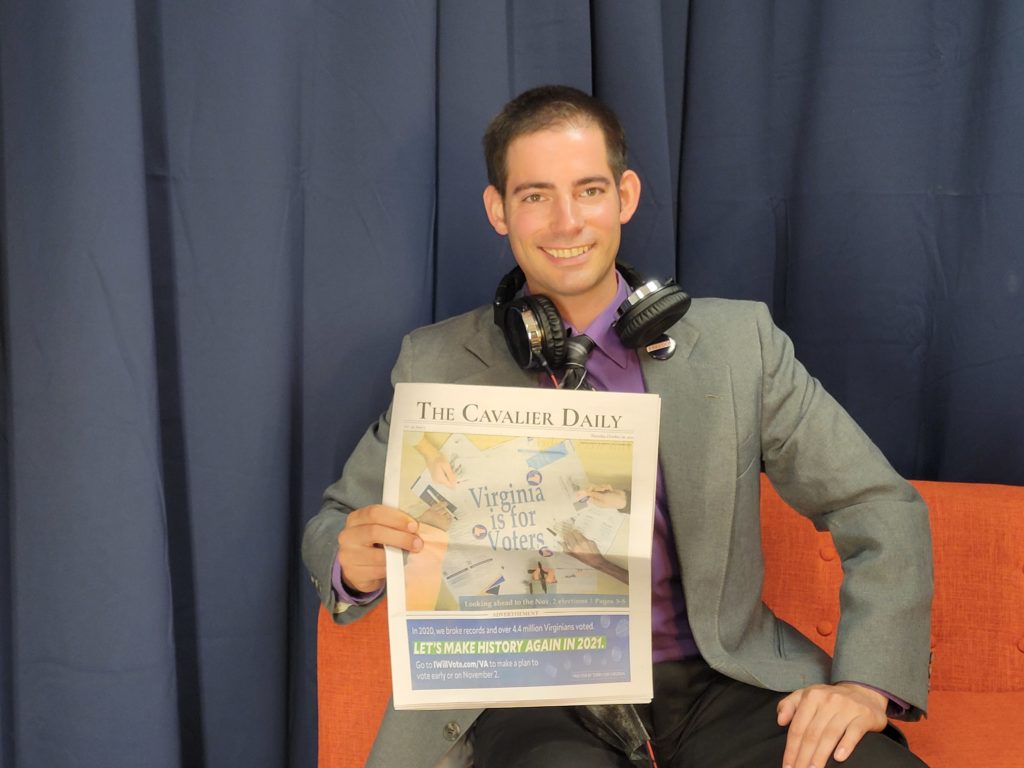Education brought Emily Dooley to Charlottesville. It’s the field she worked in for many years, the field in which she met her husband — a fellow educator — and it’s a passion that drives her to seek one of three open school board seats this year.
After moving to the area in 2003 to study at the University of Virginia, Dooley went on to teach in Monticello High School for six years, and later served as a principal at Nathanael Greene Primary School. While Dooley went on to work in real estate five years ago, her husband is a teacher at Buford Middle School. In seeking to have an impact from an elected seat, she says her insights into local real estate can also prove helpful.
“In my work as a realtor, I get asked a lot about schools,” Dooley explained.
But it’s her perspective as a former teacher and administrator along with being a parent to a child that will soon start school that she wants to bring to the board if elected.
“Boards benefit from having a wide array of voices with different experiences,” Dooley said. “My hope is I will bring that experience.”
Her policy priorities include raising teacher salaries, supporting the forthcoming reconfiguration project of Walker Upper Elementary School and Buford Middle School, and enhancing equity in local schools.
“We hear a lot about equity and it drives me nuts hearing it talked about as a separate agenda item,” Dooley said. “It’s something that has to be within every decision that we make.”
She explained that having built schedules at schools, she has seen the courses and trends that “drive kids to be grouped separately.”
Something the board has already done that she supports is its reassessment of the division’s gifted program. The changes it made brought gifted teachers into more classrooms, rather than pulling identified students out. Dooley says that decision means more students can benefit from the program.
“Nobody has ever been able to clearly define for me what ‘giftedness’ means and so it’s difficult for me to think about how we are identifying kids for something that we can’t define or measure,” Dooley said.
She says “rigorous education” needs to be available to every single student, not those who immediately appear to be testing better.
“I think our high-stakes standardized testing world we’ve existed in since No Child Left Behind was implemented has resulted in us tracking kids and grouping them,” Dooley said. “What often ends up happening is deeply inequitable in that students who are predominantly minorities or disadvantaged students don’t test well. So they get placed into test remediation classes and miss out on the really high quality instruction that they deserve.”
As the city is working on a school reconfiguration project of Walker Upper Elementary School and Buford Middle School, Dooley says she’d like the city to pursue updates to other schools as well to enhance energy efficiency.
Additionally, Dooley plans to support preparing students for life after high school that may not involve attending a college or university.
“High schools don’t always have to be geared towards matriculating at college,” Dooley said “There are jobs everywhere and we are desperate for tradesmen and tradeswomen.”
As such, Dooley plans to support opportunities for students through the Charlottesville-Albemarle Technical Education Center along with partnerships with area employers that could allow high school students real-world experience while still in school.
For college-seeking students, Dooley aims to strengthen partnerships with community colleges for students who wish to dual enroll in courses. This, she said, can allow some students to graduate high school with an associates degree or be prepared to transfer college credits to a four-year university.
In addition to commending the current board’s revisions to its gifted program and efforts towards reconfiguration, Dooley also supports the school board’s 2020 vote to remove school resource officers (SROs) from schools.
“I want to continue to support the removal of SROs from schools,” Dooley said. “That’s a really great policy change.”
The topic is also personal. During her tenure as a primary school principal a four-year-old child was handcuffed by a sheriff’s deputy that was assigned to the school. He was then transported to the sheriff’s office where his legs were placed in shackles.
The incident from 2014, Dooley said, was a learning moment for her. She had to confront her viewpoint at the time — calling it “foolish and naive.” She still carries guilt, she said.
She said she believed the SRO had a positive relationship with the child, based on previous de-escalation interactions, and relied on that assumption when she asked for assistance. The fact that the incident resulted in handcuffs and shackles was never the outcome she wanted or foresaw, she said.
As the experience was traumatic for the child and his family, Dooley said that she engaged with the student and family immediately.
“I was involved in the follow-up and monitoring of his progress in a setting that was able to provide him with what he needed,” she explained.
Dooley said the experience reminds her of the significance of the policy work she intends to support which includes enhanced funding for staff positions related to mental health and training to identify bias and inequities students may be facing.
“I support providing administrators with resources and training on de-escalation and alternatives to traditional discipline measures like suspension,” Dooley said. “I support outreach to families on how to engage with schools and ask for help and, ultimately, I support the continued pursuit of improving instruction to be more inclusive for all students.”










